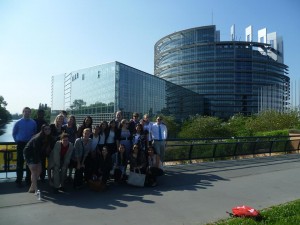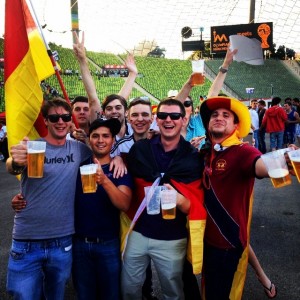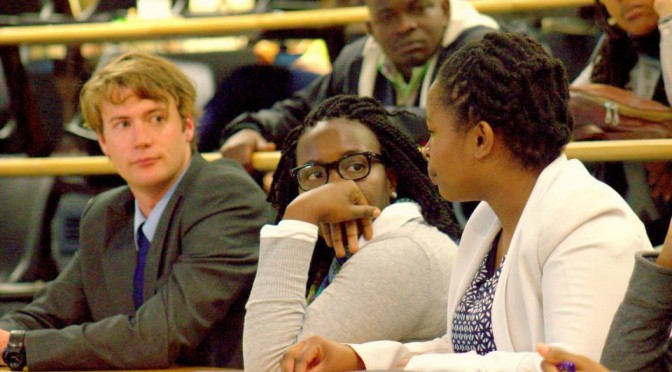Here is David’s story.
le début:
In order to properly prepare for a voyage abroad, for whatever reason it is always recommended to put in the adequate preparation that one would need in order to have a successful trip. The mandatory things are obvious, book your ticket, organise your visa requirements (if you don’t have an EU passport, I fortunately do…), budget yourself adequately (!!) and finally orientate yourself with the city in which you will be visiting. I believe those aspects sum up the major part of the preparation everyone should do before going abroad, the more interesting and somewhat less direct aspects of your preparation however is up to you. Things that work for me and which I would recommend would be the following in regards to tips:
Pack light: Try pack as light as you possibly can, optimally I would leave with my bag or suitcase 75% full because you always come back with more in terms of souvenirs and gifts you plan on bringing back home for friends and family.
Check the climate of the region you’re visiting: Naturally, see what types of clothes you will need and bring something along the lines of what weather is expected at your destination. I experienced a heat wave the first weekend in Strasbourg and am very glad I brought shorts and vests but really missed my slops! Also, it is always a good idea to take extra socks, especially in your hand luggage because it is more than likely that you will be doing a lot of walking while on your voyage!
Watch the news of the region you are visiting: You don’t have to read up on Le Monde ever day before arriving in France or where-ever you may be going but do check up on what is going on in the country which you plan on visiting. For example, a major national train strike was going on in France at the time of our stay which caused several mishaps in travel arrangements. Being delayed and lost in a foreign country where you may not know the language is not ideal! Best know what is going on and organise yourself as much beforehand as possible, check with the SNCF (train organisation) if your train is still scheduled as per outlined or potentially delayed….
Information is Power: The more informed you are about the place you are visiting the better, you will be less likely to make mistakes and ensure a more fluid arrival. HOWEVER, and I really do stress this as a personal tip, try not to learn that much about the history of the city itself, try keep yourself shut off from the good stuff. Basically all the interesting and fascinating things to learn and do in the city you visit is better once your there, with no expectations of what to expect. This gives you the opportunity to immerse yourself in your environment while discovering things as you go along. I find this more satisfying, personally.
Keep an open mind: Leave with an open attitude and a keen interest in experimenting with different foods and ideas! You will be doing yourself a major favour by engaging as much as possible in courses, with new friends and with the experience overall. Don’t hold too many reservations.
Une façon d’être:
From the beginning, the Grande Ecole de Strasbourg is very different in its structure and organisation to Stellenbosch. You will learn about the French educational system and understand how studies are approached in France. The summer course itself is intensive and extremely enlightening. You will cover a range of topics on Europe including its political formation, historical experience and economic climate which will be taught by several different professors with different stances. Your understanding of Europe becomes much more in depth and the timelines learnt are much more conceivable once you are in the European environment.
As mentioned, the course is intensive in the sense that you are presented each week with new professors covering different topics. Besides the socio-political and economic sections of the course, there is also considerable focus on cultural integration and globalisation in a business context. Effective leadership, management, marketing and the future, global business environment are all targeted as modules you have to do. You will have to submit projects and perform group presentations on the modules which are an excellent opportunity to engage with others from different part of the world and synchronise your work ethics. People work differently and immediately while learning theoretically the topics of management, leadership and business relations in a global context, you are also experiencing it practically in the projects set out. This is one of the most rewarding aspects of the course as you begin to understand how others approach the working world and this will serve you well in the globalised world we live in.
There are also the consistent French classes you have to take which are evaluated at the end of the course. The French courses, regardless of your level of fluency will help you integrate to your immediate environment. The benefit of learning a language is not only that you are more apt to communicate with those around you but that you also get a glance into the cultural mindset of those who speak the language. The French language is an extension of the French mindset and once you can grasp a few basics you are already well on your way in seeing how the French tick!
The course is also filled with company visits and cultural tours, visiting major companies in Germany (which is right next door, literally) and France while also visiting the European Parliament and the Council of Europe are very rich experiences. Areas that are visited include a Castle and winery in the Aslace region, Mercedes and a housing construction company Weberhouse in Germany and finally Steelcase, a global telecommunications company and an art museum in Strasbourg. The key lesson of these trips for me was to understand what made these companies competitive and still operating. In an economic climate where efficiency is essential to remain competitive, seeing how each firm found a different approach to the modern world was very informative. Finally you visit some of the most pinnacle institutions of European civilisation, the EU parliament and the Council of Europe. These visits embody what humanity strives for in democracy, human rights and integration. Realising it took several millennia just to arrive to where Europe is today, I realised there are many vital lessons from this process that can be imported back home without the difficult affairs Europe had to get through to get to where it is today.

How does a fish know what water is?
If you take a fish out of water, (assuming it doesn’t suffocate in context of the analogy) will a fish ‘know’ what water is? Noticing your environment becomes clearer once you have stepped out of your current one and enter another. I would highlight that the most rewarding experiencing is actually getting to know and understanding yourself. I find that the course allowed me to understand my cultural perceptions, my values and my background more now that I have experienced such varied personalities abroad. My perceptions of South Africa and Stellenbosch became a lot more explicit in the sense that I feel my understanding is more tangible. An anthropologist named Hofstede whose work was highlighted in our course, gave certain theoretical frameworks with which to analyse a culture and I find that this can be used to analyse ourselves. It fundamentally gives us the chance to possibly ameliorate things back home that we feel could change and cherish things that we value even more.
On an educational front, our tertiary education at Stellenbosch University is truly up there in term of quality with other universities across the world. The skills learnt in our respective fields are competitive and relatable to those taught at other institutions. Given that my area of expertise was economics, the economic courses followed in Strasbourg were very relevant to my degree and I gained personally from being taught by a European professor. Other areas of studies were also part of the course, including marketing, management, business orientation, sociology and anthropology.
Finally this experience has definitely convinced me to travel more, I find that once I enter the working world I hope to experience the same kind of fulfilling opportunities and meet people from all over the world. I feel I am at the end of my studies, I will no longer continuous after this year so a longer exchange is not an option for me but the experience of my summer in Strasbourg will definitely carry me forward into the future. I definitely recommend students to take the initiative and apply to spend a semester abroad or a summer school as the experience is incredibly fruitful.

